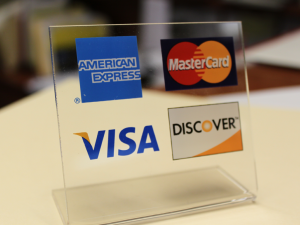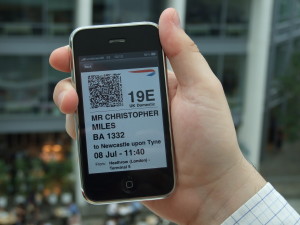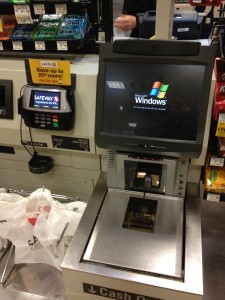Category: Credit card Processing
October 1st, 2013 by Elma Jane
A payment card transaction involves some or all the following participants:
Acquirers or Payment Processors that market card acceptance services to merchants, obtain transaction authorization, and clear and settle card transactions for the merchant.
Consumers or Cardholders that use payment cards to purchase goods and services. Issuers that market and issue payment cards to consumers and set the terms and conditions for their use; Merchants that accept payment cards for the purchase of goods and services; Network Operator that oversees the system and coordinates the transmission of information and the transfer of funds between issuers and acquirers.
Since the network operators revenue depends on the value of transactions that flow through its network, it tries to ensure the widest possible acceptance among consumers and merchants. In order to increase use and acceptance, the networks use marketing techniques to gain brand recognition, create products that encourage consumer usage and merchant acceptance, and set fees and impose rules on system participants including:
Interchange Fees they are set by the network but are generally paid by acquirers to issuers and are usually reflected in the merchant service fee paid by merchants to acquirers. Interchange fees can be calculated either as a flat fee per transaction, as a percentage of the transaction value, or a combination of both.
Membership Requirements MasterCard and Visa require issuers and acquirers to be regulated financial institutions or be sponsored by a regulated financial institution. Interac also requires issuers to be regulated financial institutions.
Network Switch Fees these fees are charged to acquirers and/or issuers, and are set and collected by the network. They can be calculated either as a flat fee per transaction or as a percentage of the transaction value.
Merchant Acceptance Rule Includes:
No Discrimination Rules which prohibit merchants from encouraging consumers to consider (or steering consumers toward) lower cost payment instruments.
No Surcharge Rules which prevent merchants from charging consumers a fee for the use of a credit card rather than some other credit card or method of payment;
Honour-All-Cards Rules which require merchants that accept any of the networks credit cards to accept all of that networks credit cards (core, high spend and premium high spend in the case of MasterCard), regardless of the applicable interchange fee. The networks have also expanded this rule to include debit cards (i.e. if a merchant accepts one debitcard, they must accept all of that networks debit cards).
With four-party card networks, such as Visa and MasterCard, the card networks seek to maximize the transactions following through them by attacting more card issuers. The networks do this by offering the prospect of interchange income to issuers, thus creating an incentive to increase interchange as much as the market (i.e. the parties paying the interchange fees) will bear.
The ability to use credit cards and debit cards to purchase goods and services rests largely on a behind-the-scenes architecture of procedures, rules and technology that govern how funds and information are transferred between people and institutions in the process of settling accounts, i.e., of ensuring that merchants that sell goods and services get paid by the people who purchase them.
Posted in Best Practices for Merchants, Credit card Processing, Electronic Payments Tagged with: accept, account, acquirer, authorization, cardholder, credit card, debit, fees, interchange, issuer, merchant service, merchants, network, payment, processor, Rates, transaction
October 1st, 2013 by Elma Jane
As Capital One drops support Isis’ future darkens
Capital One pulling its support points to the challenges that near-field-communications is having with scale as non-NFC mobile wallet initiatives take off, as Isis gears up for a broader launch.
Capital One was one of Isis’ three founding card issuers, and the company’s drop of support as the company prepares for a larger roll-out emphasizes the challenges in gaining scale and momentum for mobile payments. PayPal and Apple’s recently announced their own mobile payment options that also avoid NFC reflect the opportunity that marketers see in services beyond NFC.
“Capital One dropping its support for Isis is significant in what it telegraphs about the problems issuers will continue to face with the wallet provider.” “Issuers must pay each time a consumer loads their card onto the wallet.”
“The caveat is that whether or not a consumer uses the card, the issuer must pay to have it in the Isis Wallet. Card issuers are interested in encouraging card spend whereas Isis is purely interested in getting consumers to link their cards to the wallet. This conflict of interest will continue to be problematic.”
Losing support
Capital One pulling its support from Isis could indicate that the financial institution did not see a substantial amount of consumers using their mobile devices to pay during the pilot for repeat visits, which is key in driving consumer adoption ahead. The number of mobile payment options available for card issuers to partner with is clearly growing, meaning that Capital One might see a bigger opportunity elsewhere.
However, Capital One’s pull-out could be well-timed since Isis is signing new partners, and Isis has an opportunity to recover quickly. “Many financial institutions and merchant acquirers see PayPal and Apple as threats and the moves that these companies are making could cause financial institutions, payment networks and acquirers to accelerate their mobile payments efforts in response to the perceived threat.” Since Isis is looking to partner with the financial institutions, payment networks and acquirers, the moves made by Apple and PayPal could drive partners into Isis’ embrace.
Google expands mobile wallet
Yesterday Google made a significant upgrade to Google Wallet that continues to focus on NFC, but also adds additional payment options for consumers. The Google Wallet app has been updated to let consumers send money to friends and family in the U.S. via an email address. Consumers can either send money directly from their bank account or from Google Wallet balance. Additionally, the app is now available for all Android devices that run the 2.3 operating system and higher. Previously, Google Wallet was only available on select Android devices. Consumers can also store loyalty cards from retailers that can be redeemed by scanning a mobile device in-store. Similar to Apple’s Passbook, Google Wallet will now also alert consumers when they are nearby to a store where they have a loyalty program.
Google said that it plans to support the one of 29 different NFC-enabled devices with NFC, but the company’s focus on additional features points to NFC as un-scalable by itself. In fact, Yankee Group estimates that 18 percent of device owners have a mobile device that supports NFC.
Apple, PayPal news
The interest around NFC has also significantly decreased as both PayPal and Apple are rolling out their own mobile payment options. For example, PayPal recently introduced its PayPal Beacon device that lets consumers pay hands-free in exchange for downloading the company’s app. The technology uses Bluetooth to pick up when a consumer is in-store to trigger a payment.
Apple is also working its way around NFC with its iBeacon technology that is rolling out in iOS 7. The technology lets marketers use Bluetooth around stores that can then be used to push out offers and relevant deals.
Both Apple and PayPal’s announcements emphasize the slow adoption that NFC has had in the United States. Although the technology has taken off internationally, it has had a harder time picking up steam in the U.S. because of the low number of NFC-enabled devices.
Broader roll-out
After running pilot programs, Isis is gearing up for a broader roll-out nationally. To date, most of the activity around mobile wallets has focused around the payment section of mobile wallets, which do not have as strong of a value proposition as the coupon and offers side that Isis is forced to prove to merchants.
Additionally, the education behind getting consumers aware of how to use the technology is still clunky, as evidenced by a test at a participating location in Austin by a local mobile consultant.
“Anything in the digital wallet space is a high-risk/high-reward venture at the moment and there are few if any profits being made in this space.” “When that is the case, business continuation is more a question of resolve than a question of competition.” Having multiple players in the market increases the overall quantity of marketing efforts that will take place in the mobile payments arena, increasing the probability that at least one product will succeed.
Posted in Credit card Processing, Credit Card Reader Terminal, Mobile Payments, Near Field Communication Tagged with: Apple, Capital One, google, ISIS, mobile, near field communications, nfc, Passbook, payment, PayPal, wallet, wallets
September 30th, 2013 by Admin
Credit card processing involves three separate cost components for vendors who choose to accept this type of payment from customers for goods or services. The same cost components apply to debit cards. Only one cost component is negotiable.
The first component is an interchange fee, which is payable to the card holder’s issuing bank. It is a combination of a transaction volume percentage fee and a flat-rate transaction fee. Interchange fees are collectively agreed upon through Visa and MasterCard by a card’s issuing bank and are fixed costs.
Interchange fees take into consideration various information about a card. Types of cards include debit and credit, while categories of cards refer to commercial and reward cards. Processing methods include whether a card is swiped or manually keyed. Swiping a card is usually more economical for vendors.
Secondly, an assessment fee is charged by the card’s brand holder. Brand holders include Visa, MasterCard and Discover. Assessment fees are also fixed costs. Additionally, Visa charges a monthly fee.
The final charge is known as a processing fee. Processing fees vary among processors and is negotiable. Vendors are charged a processing fee, which can cause a difference in cost from one vendor to another. More credit card information: TopTenReviews
Jeremy is a tech blogger at TopTenReviews. He lives outside Salt Lake City, Utah
Posted in Best Practices for Merchants, Credit card Processing, Electronic Payments, Merchant Services Account, Visa MasterCard American Express Tagged with: accept, assessment, cost, credit card processing, debit cards, fees, flat-rate, interchange, keyed, payment, Processing, Rates, swiped, Swiping, transaction, volume
September 30th, 2013 by Elma Jane
Facebook this week began testing a new feature dubbed “Autofill with Facebook” that aims to simplify mobile purchases by filling in customers’ credit card information for them, thus eliminating the need to type it in each time. This “Autofill with Facebook gives people the option to use their payment information already stored on Facebook to populate the payment form when they make a purchase in a mobile app,” Facebook spokesperson told the E-Commerce Times. “The app then processes and completes the payment.” The feature “is designed to make it easier and faster for people to make a purchase in a mobile app by simply pre-populating your payment information.”During the test period, which began Monday evening, the feature will show up only to Facebook users who have already provided credit card information to the social network — in other words, those who have made in-game purchases or bought gifts for friends.
Facebook has partnered with PayPal, Braintree and Stripe as financial partners on the service, which is initially available only on the e-commerce iOS apps JackThreads and Mosaic.
Ironing Out the Wrinkles Autofill with Facebook isn’t a move to compete with PayPal and credit card companies, but to complement payment services by adding a layer for convenience, much the way Facebook, Google and Amazon have created a single login that works across a network of websites.
“Facebook is not interested in being a payments company,” an analyst, told the E-Commerce Times. “Instead, it is aiming to be the entity that irons out bumps in the payment process — something it is well-positioned to do. “With Autofill, Facebook will act as the lubricant that makes the commerce experience more seamless, providing a number of benefits to all stakeholders.”
Partners in the deal ensure that Facebook will succeed in Autofill with Facebook, it doesn’t care about payments, it cares about reaping the benefits that come from making the payment experience better.”
‘The Potential to Be Lucrative’ There could be significant financial benefits as well. “This approach has the potential to be lucrative for Facebook in that it will help plug the mobile conversion gap,” McKee suggested. “If Facebook can prove to its partner merchants that an ad on its site led to a purchase, the validity of its platform can easily be proven. Ideally, this will help convince other companies to advertise with Facebook as well.”
Taking it a step farther, Facebook will also gain transaction data, which McKee believes has considerable value. “Facebook can leverage transaction data with what it already knows about us for precision ad targeting. This will increase the relevance and placement of ads on Facebook.”
The Security Factor While many mobile customers will appreciate the Autofill function, security issues still lurk in the back of every consumer’s mind. Yet while privacy concerns have been an ongoing issue for Facebook, it has a good track record where security is concerned. “Facebook has been relatively incident-free when it comes to security breaches.” “However, this is more a problem of consumer perception. Will consumers feel comfortable storing their payment credentials with a social media platform?
“Facebook is already approaching ‘big brother’ status, and this takes it one step further.” “To succeed, Facebook must provide visibility into what it plans to do with transaction data.”
‘It’s a No-Brainer’ The convenience factor, meanwhile, could be a compelling one for consumers. “It’s no-brainer useful to mobile users…who wants to enter their credit card on a mobile phone more than once?” “It could be more secure than mobile payment alternatives.” If Facebook gets past its hurdles, it will also succeed in building strengths in areas where it has been lacking to date.
“Right now Facebook isn’t super strong at the conversion side of e-commerce.” “Autofill will give them a lot of data about purchases, which might help them remedy that.”
‘Strategic Smarts and Ambition’ As for those benefits to Facebook, there are potentially many. One example,”Autofill admits them to the online payments world.”
“This is another example of the strategic smarts and ambition of Zuck.” “One gets the sense that he wants to be a major competitor for everything online.”
Posted in Credit card Processing, Credit Card Security, Digital Wallet Privacy, e-commerce & m-commerce, Electronic Payments, Mobile Payments Tagged with: Amazon, commerce, credit card, e-commerce, Facebook, google, media, mobile, mobile phone, network, payment, payment information, payment services, PayPal, platform, processes, secure, social, transaction
September 30th, 2013 by Elma Jane
National Transaction Corporation and Trams Back Office
As National Transaction Corporation Executives get to meet Sabre’s key people in Miami FL let’s know more about what Trams Back Office one of their respective products can offer.
Travel and transportation industry is evolving quickly, agility is needed in adapting to the changing customer needs. In addition to providing the right services for customers and for business.
With Trams Back Office, part of the Sabre Red travel solution, your capable to easily monitor, manage and grow your business. Trams provides right-size, right-price information technology (IT) solutions and is one of the most popular back office accounting and reporting system on the market today. It’s easy to learn and use, helping you control costs with extreme efficiency.
In addition, Trams Back Office seamlessly works withClientBase to deliver a complete solution incorporating GDS integration, CRM, General Ledger, and more.
Special Features
Credit Card Merchant – process your merchant credit card service fees and other transactions through Trams Back Office.Trams and ClientBase Products and Services has formed alliances with credit card processing companies, to bring you competitive rates and an easy-to-use interface to process agency merchant credit card service fees and other transactions through Trams Back Office.
The Credit Card (CC) Merchant Reconciliation under Payments|Reconciliation|CC Merchant Reconciliation takes the CC Merchant payments from Trams Back Office (TBO) verifies them, and sends them electronically to your credit card processor. Your credit card transactions are then processed and sent back to Trams Back Office, where TBO clears the processed items and creates the payment and the journal entry to record the activity in the General Ledger.
Add Ons
Trams Crystal Reports – measure effectiveness and efficiency by running pre-designed Crystal Reports within the Trams Back Office system. Its FREE!! Trams Crystal Reports is an add-on to ClientBase and/or Trams Back Office that offers you the ability to run pre-designed Crystal Reports in addition to those offered within the Trams Back Office and ClientBase products. TCR10 is the most recent version of Trams Crystal Reports that is integrated with Trams Back Office and ClientBase. When TCR10 is installed, you will be able to launch Trams Crystal Reports from your desktop or in Trams Back Office, using the TCR Viewer under Reports.
IC/Host Agency Export Utility- allows Independent Contractors to share invoice data with their Host Agency’s Trams Back Office system for FREE!! Agencies today are choosing to change the way they make their bookings. Many are dropping out of ARC/BSP and booking air tickets through a Host Agency. They may also book some or all of their Cruise & Tour business with a Host Agency, or continue doing those bookings as they always have. These Independent Contractor (IC) Agents working through a Host Agency, may still operate a Store Front location, or move into a “home based” environment. This utility is designed for independent contractors (IC) and host agencies to share data more efficiently. IC’s use the host’s GDS create invoices marked with their own IC code. These invoices are then interfaced into the host’s Trams Back Office (TBO) database. This utility gives the Host the ability to transfer these interfaced invoices to the IC for importing into their IC copy of Trams Back Office. To receive records from a host agency using this utility, an IC must have a copy of Trams Back Office. The utility also allows IC’s that use ClientBase to create invoices, to export those invoices and share them with the host agency.
Over View – Trams Back Office is a locally installed solution that allows agency to effectively manage entire accounting and reporting process with their Free Special Features and Free AddOns.
Posted in Credit card Processing, Electronic Payments, Merchant Services Account, Travel Agency Agents Tagged with: agencies, agency, agency's, air, Back Office, clientbase, credit card merchant, credit-card, host, payment, processor, reporting, Sabre Red, solution, store front, tickets, Trams, transportation, travel
September 26th, 2013 by Elma Jane
With revamped iPhone app Travelocity rethinks smartphone bookings
To accommodate for the more gesture-based features in Apple’s new iOS 7, Travelocity rebuilt its iPhone application from the ground up. The online travel agency’s new app is aimed at moving users through the booking process quicker with more visuals. Travelocity has been streamlining all parts of the trip-planning experience with its mobile apps continuously in the past few years.
“Luckily, we have a great, agile team and some top-notch mobile designers, so we were able to dive into the new design as soon as the beta was released. “We also decided early on to rebuild this version from scratch and really work on making it fast and reliable,” said Blake Clark, director of mobile for Travelocity. “We find mobile travelers demand speed and sometimes they’re in less-than stellar connection areas, so that was a big one.”
Streamlined design
Tavelocity updated its iPhone app with a design that highly plays up images and visuals. The app’s home screen shows photos of world cities to inspire consumers to take a last-minute trip. The app also leverages the new AirDrop feature of iOS 7 to let consumers securely share their travel information with friends and family members after they book a hotel.
The new app includes a feature that lets consumers scan their credit cards with a built-in camera feature to cut down on the number of steps that it takes consumers to check out. The technology detects the number on a credit card and automatically fills in portions of the checkout page. The app also highlights Travelocity’s mobile-exclusive offers that take into account a user’s location to serve up relevant offers and deals.
Travel on mobile
Travelocity has been building up its mobile strategy for quite some time with different mobile products and ad campaigns. Most recently, the brand designed its Web site around responsive design, which led to a 6 percent increase in iOS bookings and an 8 percent jump for Android reservations after two month.
Travelocity’s tablet booking experience was also named the best this spring in a study from Mobivity.
Travelocity is the latest example of how iOS 7 has shifted the way that marketers develop mobile apps with more gesture- and touch-based features. “It’s a shift of how Apple customers interact with their devices, and as a leader in the travel space, we wanted to make sure we’re reducing the amount of friction travelers have when booking a trip.” “With the iOS 7 launch, now our app and the device look, work and feel the same; it’s seamless.” Mr. Clark said.
“Travelers can easily access the deep selection and great value Travelocity is known for. Travelocity’s goal – to be a traveler’s trusted companion before, during and after the travel experience.”
Posted in Credit card Processing, e-commerce & m-commerce, Electronic Payments, Mobile Payments, Near Field Communication, Travel Agency Agents Tagged with: agencies, agency, agency's, agent, app, booking, iOS, ios7, Iphone, mobile, smartphone, travel, travelocity
September 26th, 2013 by Elma Jane
Mobile checkout integrated into transportation ticketing app by Barclay’s Pingit
Barclay’s Pingit mobile payments service is teaming up with Corethree to bring the financial institution’s mobile checkout to public transportation customers in Britain.
Corethree offers a mobile wallet for transport ticketing in Britain. By including Barclays Pingit in its wallet, Corethree can offer users more flexibility in how they pay for tickets.
“Providing a variety of native payment solutions within the application enhances the customer experience by allowing them the same type of purchasing experience that they currently enjoy from their favorite websites and ecommerce sites.”
“In the U.S. this includes integrating with payment option like PayPal and eventually electronic wallet providers as well.”
Mobile checkout
Pingit was introduced in early 2012, enabling users to make person-to-person payments.
The app’s breadth of services have been expanded several times since to include mobile payments from NFC tags and mobile checkout for Web sites and print ads.
Corethree reports that it is the first business to integrate Barclays Pingit mobile checkout, enabling bus passengers to browse, select, purchase and use bus tickets from their mobile devices.
Over the next 12 months, Corethree and Barclays will roll out their mobile payment services to other transport operators, with the goal of reaching up to 1 million passenger journeys per day.
The service will be available via Android and iPhone devices on any mobile network.
Mobile payments entry
Public transportation organizations around the world are embracing mobile ticketing to make it easy for riders to purchase and use tickets from their smartphones. Enabling users to purchase transit tickets anywhere at any time that can be used. Last year, the Massachusetts Bay Transportation Authority rolled out a new mobile ticketing service, giving commuters a way to purchase and display rail tickets on their smartphones.
“Transit is an integral part of consumers’ daily lives, and as such providing consumers with a secure way to pay with their phone and not have to carry cash or exact change is a great starting point for people to get comfortable using mobile payments.”
“Mobile ticketing is a great way to introduce customers to making payments from their mobile device.”
Posted in Credit card Processing, Digital Wallet Privacy, e-commerce & m-commerce, Electronic Payments, Mobile Payments, Mobile Point of Sale, Travel Agency Agents Tagged with: checkout, devices, electronic wallet, integrating, Iphone, mobile, nfc, payment, payments service, smartphone, Tags, ticket, ticketing, tickets, transportation, travel
September 9th, 2013 by Admin
September 6, 2013 – The IRS recently announced that it has ruled in ETA’s favor on proposed changes to IRS 6050W, merchant transaction reporting. ETA advocated for a one-year delay of the implementation of backup withholding (or B notice process) for merchants who have missing or incorrect TINs. ETA sent a letter to the IRS in May outlining the industry’s strong concern about the impact on small and medium sized merchants as well as the economy as a whole if backup withholding were to be started in the fall of 2013. Since that letter, ETA has been engaged in ongoing communication with the IRS to amplify the message within the government. The announcement is great news for merchants and acquirers will be given another year to work out the issues with missing and incorrect TINs.
The correspondence from the IRS to ETA reads as follows:
We are pleased to inform you that the Internal Revenue Service has decided to delay the inclusion of Form 1099-K in CP 2100 and CP2100A notices for an additional year. A formal announcement (Notice 2013-56) will be released in Internal Revenue Bulletin (IRB) Number 2013-39 scheduled to be printed September 23, 2013.
The Internal Revenue Service will not issue CP 2100 or CP 2100A notices based on incorrect name and TIN combinations reported on Forms 1099-K filed in 2013 for calendar year 2012 payments. As a result, payers will not be required to begin backup withholding on payees with an incorrect name and TIN combination with respect to these forms. Beginning in late 2014, IRS will issue CP2100 and CP2100A notices based on incorrect name and TIN combinations reported on Forms 1099-K filed in 2014 for calendar year 2013 payments.
The IRS will also provide relief from penalties for failure to include correct information under sections 6721 and 6722 for (1) incorrect name and TIN combinations reported on Forms 1099-K filed for calendar years 2012 and 2013 payments; and (2) missing and obviously incorrect TINs reported on Form 1099-K filed for calendar year 2012 payments.
We developed a document to assist payment settlement entities (PSEs) to obtain correct taxpayer identification numbers (TINs) and names from their customers. We understand that often times this process is difficult. The attached Notice 1430 can be used as a “stuffer” to include with the monthly statements sent to customers.
We appreciate our partnership with your group and value your perspective. We recognize the complexities associated with complying with these requirements and are particularly mindful of the related burdens on tax professionals, business and individual taxpayers. We continue to welcome your ideas for improvements, along with your feedback about how these requirements effect your organization and its members.
Thank you for your interest and sharing your concerns.
Internal Revenue Service
Posted in Best Practices for Merchants, Credit card Processing, Merchant Account Services News Articles
August 19th, 2013 by Admin
1. Use newer POS systems to reduce credit card fees.
2. Find out what percentage of your gross sales go toward credit card rates.
3. Perform a statement review at least annually.
Any time a customer uses a credit card to purchase services and goods the merchant pays various rates and fees processing those transactions. Most of these fees go to the bank issuing the credit card as they take on the bulk of the risk in credit card transactions. Visa, American Express and Discover own the network on which these credit card transactions are processed on and they receive part of the fee and percentage rate as well as establish these rates and fees. Finally the bank that provides merchant account services gets part of these rates and fees.
To a small business 2, 3, or even 4% might not sound like much but when these fees are on the gross total of sales they can be significantly higher than originally thought. For this reason it’s a great idea to assess your merchant account statement to see if rates are in line and that your most frequently used cards and transaction types are getting the best rate possible. By going over your statement, you can see exactly what you pay per transaction and get details about your most common transaction types and credit card used to get the process going. Knowing how to untangle the various levels of pricing rates and fees can be daunting if you don’t know what they mean. If you are unfamiliar with what these rates and fees mean on your statement companies like National Transaction can perform the review for you. Free of charge.
Ultimately the best thing to have is a merchant account service provider that will take the time to go over your business with an eye lowering your rates and fees. The savings can be significant. As a business grows it changes and there should be an ongoing strategy at maintaining the best processing rates and fees possible. Today with so many different credit card types, like rewards cards, airline miles programs and more it can pay off to check once or twice a year.
Posted in Best Practices for Merchants, Credit card Processing, Electronic Payments, Merchant Services Account Tagged with: account, American Express, bank, card, credit, fees, MasterCard, merchant, process, Processing, Rates, services, Visa MasterCard American Express
August 16th, 2013 by Admin
 Square credit card processing service was fined $507,000 by Florida’s Office of Finance Regulation for operating an electronic payment processing service without a money transmission license. Some may remember the same treatment in Illinois in March of this year. The order covers two years of operation and processing including Square Register, stored value and prepaid access credit card services.
Square credit card processing service was fined $507,000 by Florida’s Office of Finance Regulation for operating an electronic payment processing service without a money transmission license. Some may remember the same treatment in Illinois in March of this year. The order covers two years of operation and processing including Square Register, stored value and prepaid access credit card services.
Square was granted a money transmission license after it paid the fine via wire transfer and is now in compliance. Square neither admits or denies any wrongdoing. Although it’s an emerging field the Florida based fines show that adhering to state laws is a tricky situation that needs extra scrutiny on the processors end. Due to the state by state nature of the laws, credit card processing companies find themselves complying with each state’s independent regulation laws.
In a statement from Square.. “We worked with Florida to resolve our application and receive our license to operate as a money transmitter in the state, We look forward to continuing to help merchants across Florida grow their business with Square.”
Posted in Credit card Processing, Electronic Payments, Mobile Payments, Mobile Point of Sale Tagged with: account, credit card, Florida, merchant, merchants, Processing, Square








